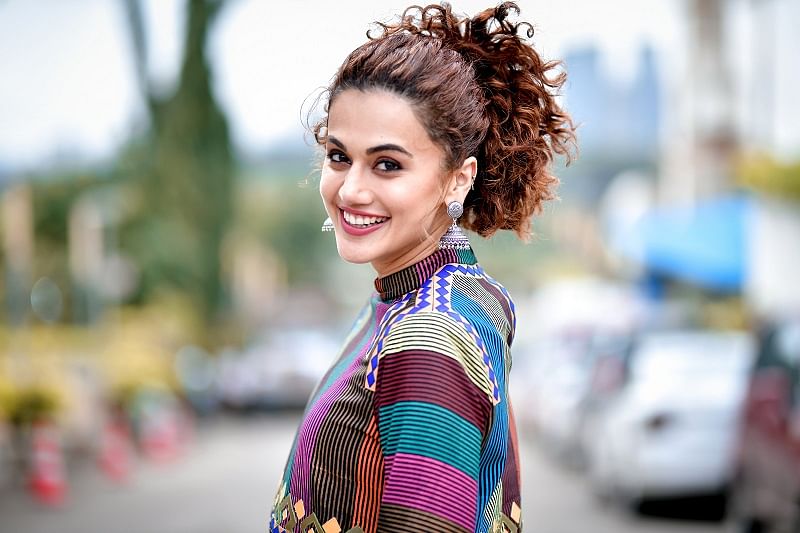Taapsee Pannu was one of the liveliest voices at the 50th edition of the International Film Festival of India (IFFI), and one of the few celebrities who chose to share honest thoughts instead of playing to the gallery. DH caught up with the Badla actress for a chat and a photoshoot. Excerpts:
Has a script come to you that was misogynistic but you realised you had to take it because it was big?
Not after I realised what misogyny is. At the beginning of my career, I did not. Those were the kind of films we grew up watching. That was supposed to be the norm. It was only over a period of time after I started working in films that I realised that this is not okay. It took me a while to understand what misogyny is and why it should be stopped. I cannot make a big change all by myself but I can at least change the way I do films.
I am sure such scripts still come to you…
No, they don't. In fact, I have been told by some people: 'Why do you do these strong leading women roles? Let the heroes also take centre stage'. I have no problem with heroes taking centre stage, I have done Baby, Mission Mangal, Soorma… and then I am told: 'In those (films) also, your characters have been like - women should do this'. And I say: 'What's wrong in that?'. For years, we were seeing heroes taking centre stage and we were celebrating that. I also enjoy a lot of those films. But that is not seen as too much. No hero is ever told, 'This is too much of heroism. Stop doing hero films and let the heroine take centre stage'. I choose films based on my audience, thinking like my audience. Is it interesting for me to spend time and money on this film? And I will continue to choose films like that without thinking about 'strong women', 'antagonist', 'protagonist' or whatever. I will think, 'Will my audience remember me when they walk out of the theatre?'
Do you have to take a pay cut when you choose a woman-centric role?
A woman gets paid on the basis of how much you need the film and how much the film needs you. When a film comes to me where I am the best bet for the role or the first choice, I get paid the amount I ask for. Of course, it has to be a sensible amount. Then I will probably be paid the highest in the cast. When it's a role where you are replaceable, you will not get a lot of money. They will think, 'Oh, she is asking for so much money, she is not available on these dates. Fine, let's get someone else'. Because it's not going to change much in the film.
What's the film that you have taken the biggest pay cut for?
Mulk. Because we were not sure if the film will even release. It's not just me, everyone in the cast and crew took a huge pay cut. Almost 50%. To make sure that the film sees the light of the day.
What is your process? When you get a script, do you read it multiple times?
Sometimes they narrate and sometimes I read it. Either way, it will only be once. Because even you watch a film once and see whether it's nice or not. I want to decide like an audience. I have to instantly say yes or no. I don't say I will come back and tell you. Because if I am going to go back home and think and tell you, that means I am trying to convince myself. So, I instantly decide.
Was there ever a film that you regretted employing that method on?
There have been films I have said no to, which have ended up becoming big hits. But I don't regret that because my part was not great in those films. I want people to remember me after they walk out of the theatre. So, that's why I don't regret it. I knew hearing those scripts that they were going to do well. But I didn't think I will enjoy doing those roles.
How do you respond to seeing yourself on the screen?
I can't see myself on the screen. It's very difficult. I just watch it once. After that, I watch screenings in parts. I don't see the whole scene again. I just attend screenings if guests are there and I stay for a few minutes. Even if I am on television promoting some show, I always leave the room.
